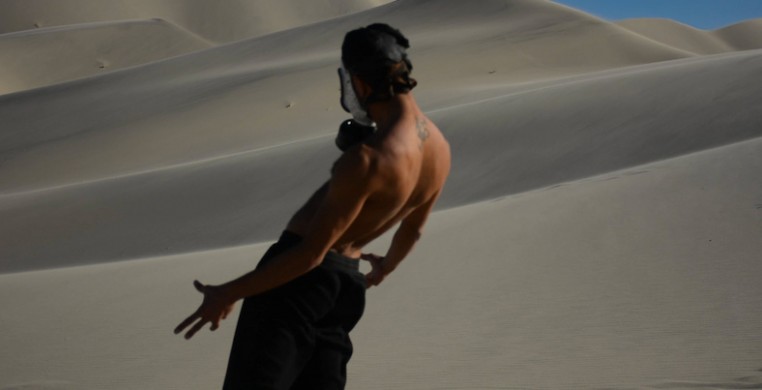With over 40 films submitted by artists from around the globe, Mana Contemporary brings a unique body and movement-centered film festival to Chicago, highlighting artists who take risks and push the boundaries of the medium.
Mana Contemporary’s Body + Camera 2019: The Uncertain Body debuts in Chicago April 7, with day-long programming that explores themes of purpose, place and anxiety within the human body. Hosted by the Chicago Cultural Center, the Body + Camera festival returns for a second year with a broad compilation of films reflecting distinct perspectives by experimental and contemporary media-based artists.
Mana Contemporary is located in three cities across the country: Chicago, Miami, FL and Jersey City, NJ. Based in the Pilsen neighborhood, Mana Contemporary Chicago houses artists of multiple disciplines and artists at varying points in their careers within the same space. With programming spanning a range of movement and film styles and featuring the work of both emerging and established artists, the festival’s programming reflects Mana Contemporary Chicago’s interdisciplinary mission.
The Body + Camera festival—which visited Jersey City and Miami before it’s final presentation in Chicago—is an initiative originally developed to elevate different perspectives of the body as enhanced by film. The films will be screened in categorized sections that include the body’s relationship to nature, distorted physical realities, and movement and dance. A “Young Voices” category features the work of emerging artists under age 25.
“There are many, many different ways of experiencing bodily identity in these works, each artist’s lens creating a specific vantage point that allows audiences to understand their perspective,” Molly Feingold, Mana Contemporary’s director of performance and programming, said in an email.
These varying vantage points influenced the themes of this year’s Body + Camera. Submissions, which came from over 25 countries, largely portrayed moods of anxiety or internal struggle towards “fast-changing technologies, political absurdities, and grave environmental shifts” as stated in the festival’s press release.
“From the psychological dissonance involved in maintaining a digital presence that Jillian Mayer explores in ‘Day Off 1,’ to the challenge of navigating the rocky terrain of societal expectations that Marloes Ten Bhömer addresses in his film, anxiety is clearly running high,” Feingold said. “Such works illuminate ways in which we struggle to understand corporeal existence within a fluctuating world.”
As part of the festival’s goal to “provoke discussion around the event’s theme” as stated on the website, live events will be interspersed throughout the screenings. The event will be free and open to the public, allowing Chicagoans greater access to engage with the festival’s films and subject matter.
Since Chicago’s first Body + Camera festival in 2017, Feingold notes the festival’s significant growth. In 2018, Mana Contemporary received ten times as many submissions as 2017, and this year, they are presenting the festival at all three of their locations.
Feingold also noted how having the Chicago Cultural Center host this year’s festival is “a sign of major growth.”
As the last stop on the Body + Camera circuit, the Chicago festival provides an opportunity for audiences to experience the intersection of movement and media on a large scale. With a group of films dedicated specifically to the Midwest, the 2019 festival connects Chicago audience members with perspectives that are both familiar and foreign, heightened by the movement of the body and film media.
“With such a variety of international voices and mediums, I think audience members will gain renewed curiosity about the nature and presentation of the body in contemporary society,” said Feingold.
---
Body + Camera 2019: The Un/Certain Body is Sunday, April 7 at the Chicago Cultural Center, presented in partnership with Chicago Dancemakers Forum, the Chicago Department of Cultural Affairs and Special Events (DCASE) and Montom Arts. The event is free and open to the public. For more information, click the link below

